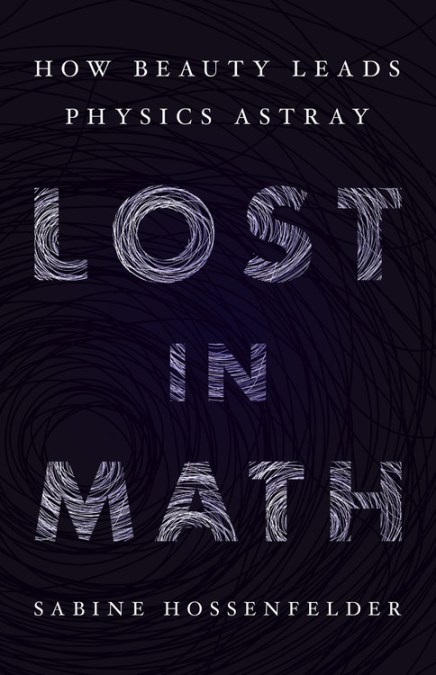
Yes, it’s the excellent Sabine Hossenfelder again, author of Lost in Math: How Beauty Leads Physics Astray, trying to understand a world where intelligent people are expected to pretend that nonsense is good sense:
How often can you hold up four fingers, hear a thousand people shout “five”, and not agree with them? How often can you repeat an argument, see it ignored, and still believe in reason? How often can you tell a thousand scientists the blatantly obvious, hear them laugh, and not think you are the one who is insane?
I wonder.
Every time a particle physicist dismisses my concerns, unthinkingly, I wonder some more. Maybe I am crazy? It would explain so much. Then I remind myself of the facts, once again.
Fact is, in the foundations of physics we have not seen progress for the past four decades. Ever since the development of the standard model in the 1970s, further predictions for new effects have been wrong. Physicists commissioned dozens of experiments to look for dark matter particles and grand unification. They turned data
up-side down in search for supersymmetric particles and dark energy and new dimensions of space. The result has beenconsistently : Nothing new…Those who, a decade ago, made confident predictions that the Large Hadron Collider should have seen new particles can now not be bothered to comment. They are busy making “predictions” for new particles that the next larger collider should see. We risk spending $20 billion dollars on more null-results that will not move us forward. Am I crazy for saying that’s a dumb idea? Maybe. Sabine Hossenfelder, “Maybe I’m crazy” at BackRe(Action)
No, Sabine, you’re not crazy. But you live in crazymaking times. Cosmology has degenerated into the pursuit of cool nonsense like the multiverse via string theory. So much now seems to revolve around whether findings help or hurt the nonsense. Not about learning more about what is really happening here now.
At least, that’s what it looks like from the outside. So – if it’s any help – outsiders would not think you are crazy. And usually, when a person is crazy, it’s the outsiders who notice first.
Keep hold of this: Even the multiverse can’t come to exist just because people can imagine it.
See also: Sabine Hossenfelder: Physics Problems That Lead To Breakthroughs Arise From Inconsistencies In Data, Not Beautiful Math
and
Theoretical Physicist Sabine Hossenfelder Shares Her Self-Doubts About Exposing Nonsense In Cosmology
Follow UD News at Twitter!